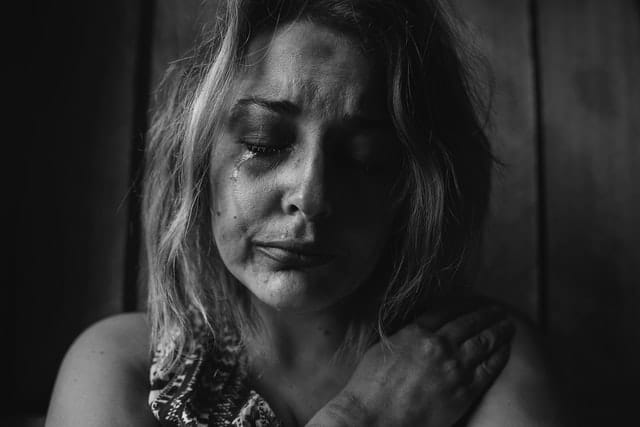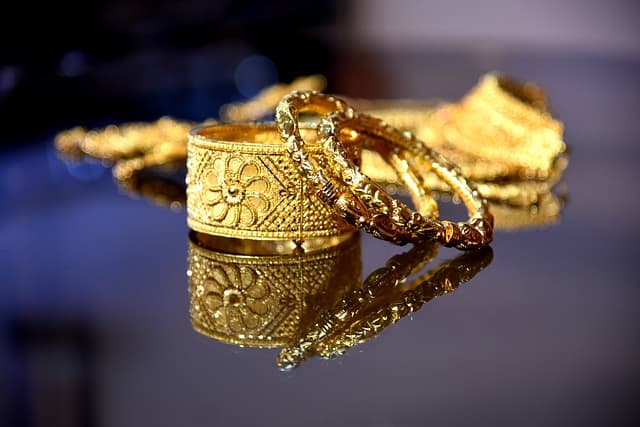The main idea behind creating Taboo Talks a public website is to let people feel free to share their experiences, ideas, views or content on topics they consider taboo.
Dowries are illegal in India, But why families still give and take them?
A dowry is a gift of substantial monetary value given from either the bride or groom to their future spouse upon marriage. The dowry is an ancient tradition found across cultures, religions, and periods. It is uncertain where dowries originated, but the custom takes place in wedding ceremonies even today.

Although They abolished the Dowry system in 1961 In India we still practice it all over India, not only in rural but also in urban areas. In the name of customs and rituals, dowry prevailed in India.
Although Dowry seems like an exchange of monetary gifts like money, property, Gold, or any expensive form in India, dowry has an alarming trend that sees. 20 women die every day because of harassment over a dowry – either murdered or compelled to commit suicide.
Dowry Situation in India
Dowry deaths are deaths of married women who are murdered or driven to suicide by continuous harassment and torture by their husbands and in-laws over a dispute about their dowry, making women’s homes the most dangerous place for them to be. It found predominantly dowry deaths in India, Pakistan, Bangladesh, and Iran.

There have been many reports of forceful, aggressive dowry demands from the girl and her family that have caused women violence.
India reports the highest total number of dowry deaths with 8,391 deaths reported in 2010, meaning there are 1.4 deaths per 100,000 women.
Adjusted for population, Pakistan, with 2,000 reported such deaths per year, has the highest rate of dowry death at 2.45 per 100,000 women.
National Crime Bureau of India, as recently as 2017, recorded nearly 7000 dowry linked deaths a year. Dowry deaths rose from about 19 per day in 2001 to 21 per day in 2016. And we are yet talking about reported dowry deaths here. Many go unreported. Taking or giving dowry has been criminalized by law as early as 1961. But, it is still a significant part of Indian marriage and is openly defying laws and failing women’s empowerment.
Dowry death is one of the many categories of violence against women, alongside rape, bride burning, eve-teasing, female genital mutilation, and acid throwing.
In Indian traditional marriages, the dowry system perpetuates the concept of the girl’s parents giving gold, property, monetary gifts like Cars, bikes, etc, and other material goods to the boy’s family for taking care of their daughter.
It reinforces the ‘belief’, that Indian society has long perpetuated that girls and women are a burden on society. This reduces a girl’s value to the money and material goods she brings to her wedded house.
This has caused men to feel superior to women and a notion of slavery has arisen in Indian families that women work at home, be a good wife and daughter-in-law, her work is only to take care of children and her family, educating a girl is even considered a taboo in some rural areas.
Is dowery banned in India?
Yes, Dowry has long been prohibited under specific Indian laws including the Dowry Prohibition Act 1961 and subsequently by Sections 304B and 498A of the Indian Penal Code.
The Dowry Prohibition Act 1961 defines dowry:
“Dowry means any property or valuable security given or agreed to be given either directly or indirectly
- by one party in a marriage to the other party in a marriage
- By the parents of either party to a marriage or by any other person to either party to a marriage or any other persons;at or before or after the marriage as consideration for the marriage of the said parties.
But does not include dower or mahr with persons to whom the Muslim Personal law applies.
The dowry prohibition Act, 1961, (Act No. 28 of 1961):
An Act to prohibit the giving or taking of dowry If any person, after the commencement of this Act, gives or takes or abets the giving or taking of dowry, he shall be punishable with imprisonment for a term which shall not be less than five years, and with the fine which shall not be less than fifteen thousand rupees or the amount of the value of such dowry, whichever is more.
Presents which are given at the time of marriage to the bridegroom (with no demand having been made on that behalf), such presents are customary and the value thereof is not excessive having regard to the financial status of the person by whom, or on whose behalf, such presents are given.
To know more about this Act, you can download PDF by clicking here
What should a woman do if she finds out her in-laws had taken dowry?
Dowry to be for the benefit of the wife or heirs:
Where any dowry is received by any person other than the woman in connection with whose marriage it is given, that person shall transfer it to the woman :
1.) If the dowry was received before marriage, within three months after the date of marriage; or
2.) If the dowry was received at the time of or after the marriage within three months after the date of its receipt; or
3.) If the dowry was received when the woman was a minor, within three months after she has attained the age of eighteen years, and pending such transfer shall hold it in trust for the benefit of the woman.
4.) If any person transfers no property as required within the time limit specified therefor or as required he shall be punishable with imprisonment for a term which shall not be less than six months, but which may extend two years or with a fine which shall not be less than five thousand rupees, but which may extend to ten thousand rupees or with both.
Where the woman entitled to any property dies before receiving it, the heirs of the woman shall be entitled to claim it from the person holding it for the time being:
1.) If she has no children, be transferred to her parents.
2.) If she has children, be transferred to such children and pending such transfer, be held in trust for such children.
Private organizations working on Dowry Issues
Amnesty International(Headquarters in the united kingdom)
Educating the public has cited dowry deaths as a major contributor to global violence against women. Also, in their annual human rights evaluations.
Human rights watch has also criticized the Indian government for its inability to make any progress towards eliminating dowry deaths and its lackluster performance in bringing its perpetrators to justice in 2011. In 2004, the Global Fund for Women launched its “Now or Never” funding project.
This campaign hopes to raise funds domestically and consequently finance the efforts of feminist organizations across the globe–including Indian women’s rights activists.
Why women don’t raise their voices against dowry?

The basic reason is fear and lack of education in our Indian constitution. First, people don’t even know that dowry is a serious criminal offense under the Indian penal code.
Family under the blind knowledge of the faith and ceremony family still consider this a necessary act during marriages, under this impression that a girl is a burden and only her happiness is with her husband and In-laws irrespective of the amount they have to pay they will marry her in a family where her happiness is decided based on the amount they pay to the family. The amount of dowry decides the happiness of a woman.
But even if women knew about the acts and legality of dowry just because of fear, she keeps her voice down. She fears if after she retaliates she might be beaten by her In-laws and her own family won’t accept her if she comes back home might beat her. Because of the pressure of society, she keeps her voice down against this crime even if she is beaten.
International efforts on Dowry
Reports of incidents of dowry deaths have attracted public interest and sparked a global activist movement seeking to end the practice. Of this activist community, the United Nations (UN) has played a pivotal role in combating violence against women, including dowry deaths.
United Nations
The United Nations has been an advocate for women’s rights since its inception in 1945, explicitly stating so in its Charter’s Preamble, the Universal declaration of human rights (adopted in 1948),
the International Covenant on Civil and Political Rights (adopted in 1966), the international covenant on economic, social, and cultural rights (also adopted in 1966) (we know collectively these three documents like the international bill of rights and the convention on the elimination of all forms of description against women (CEDAW) (2012).
The united nation children’s fund (UNICEF), though predominately focused on improving the quality of education available to children globally, has also taken a proactive stance against dowry death. On March 9 (International women’s day ), 2009, at a press conference in Washington D.C., UNICEF’s Executive Director, Ann M. Veneman, publicly condemned dowry deaths and the legislative systems which allow the culprits to go unpunished.
In 2009, UNICEF launched its first Strategic Priority Action Plan for Gender Equality, which was followed by a second Action Plan in 2010. These plans have aimed to make gender equality a higher priority within all international UNICEF programs and functions.
Is dowry negation of the girl’s dignity?

Dowry deaths rose from about 19 per day in 2001 to 21 per day in 2016. While these statistics are worrying, there is a great deal of variation in the incidence of “dowry deaths” across regions and. It is indeed alarming that the rise in dowry deaths is unabated, despite the greater stringency of anti-dowry laws. In 1961, the Dowry Prohibition Act made giving and taking of dowry, its abetment, or the demand for it an offense punishable with imprisonment and fine or without the latter.
But with proper educations and camps with hand-in-hand of private and government organizations dowry can be stopped. Don’t keep your voice down even if it’s not happening with your family. If in your society you see some violence against women talk to her educate her to tell her rights and complaint in the nearest police station.
But before any of these starts within your family, stop the dowry system within your family. Almost everyone will get married once in their life so stop within your family then changes will happen in society.
Dowry Murder
Are Indian women victims of their culture or active agents of a crime they inflict upon other women? Is dowry murder a cultural crime? Oldenburg provides an analytical and nuanced treatment of a complex and deeply controversial issue.


